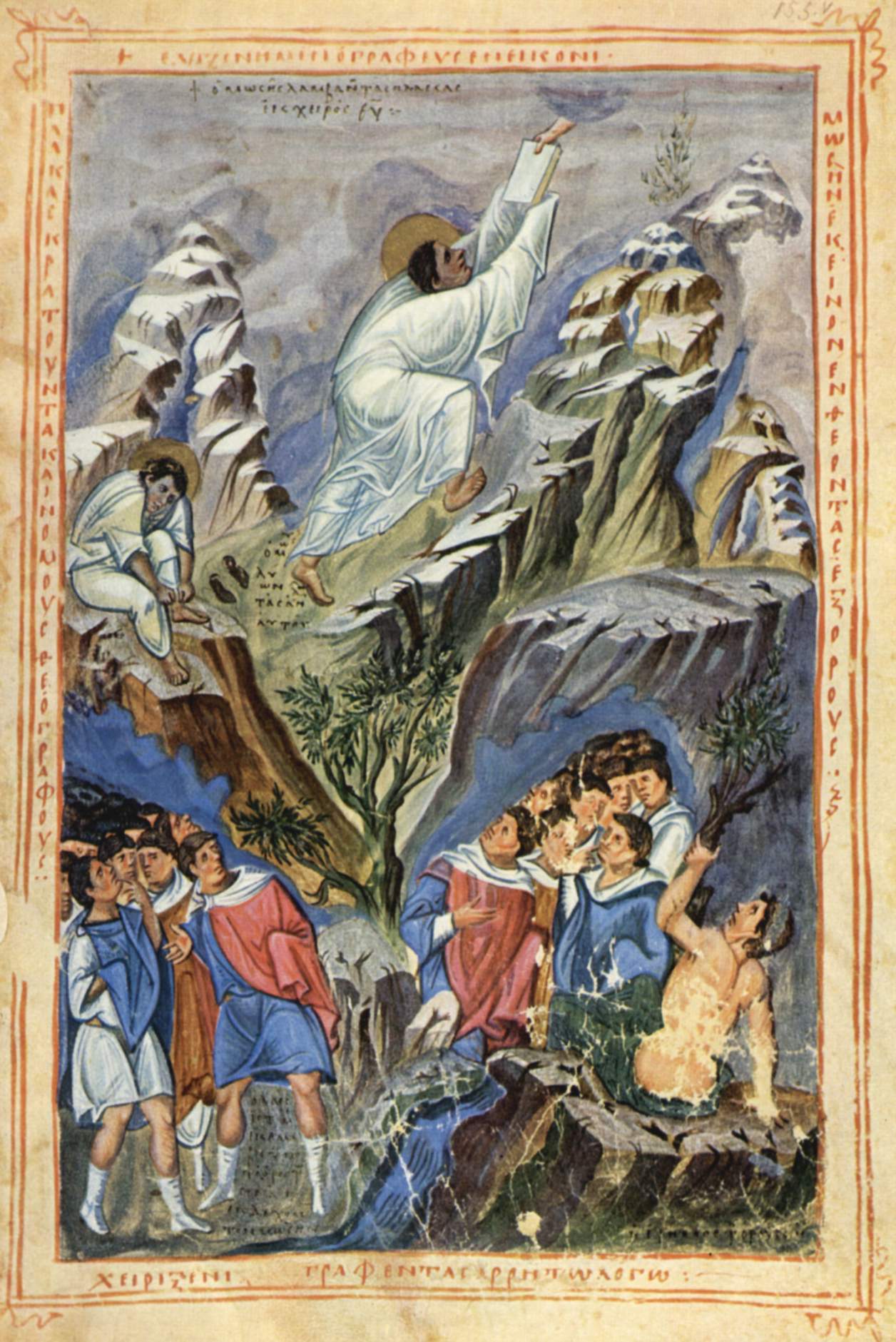Lenten Saturday Week 1 (27 Feb 2010)
Dt 26. 16-19; Ps 119; Mt 5. 43-48
Homily of Fr. Paul Panaretos, S.J.
Our Purpose
One of the many advantages of side-by-side readings from both Testaments of the bible is that we see a richer tapestry of the qualities of God and our kinship with them. Though we are not identical to God, we bear a closer resemblance to God than any other created thing. That’s what image and likeness of God mean. A 4-month-old girl may bear striking resemblance to an aunt, when she was that age, but no one confuses the infant with the aunt.
The reading from Deuteronomy, using covenant language of two parties, does not allow us to collapse humans into God. Rather, it announces our purpose, using the word sacred. Sacred is a better translation of the Hebrew word than another frequent translation, holy. The Hebrew did not mean or imply pious but set apart for a particular purpose. Deuteronomy amplified the divine purpose: you are to be a people peculiarly [God’s] own, as [God] promised you.
 When they did not know God, and thus could have no affection for God, God chose to rescue the ragtag band of Hebrews in Egypt, in order that they might make God known to all humans as the one creator and redeemer. One effect of their vocation allowed more people know that all humans were images and likenesses of God: all people, not believers only, as James reminded us, humans are made in the likeness of God.
When they did not know God, and thus could have no affection for God, God chose to rescue the ragtag band of Hebrews in Egypt, in order that they might make God known to all humans as the one creator and redeemer. One effect of their vocation allowed more people know that all humans were images and likenesses of God: all people, not believers only, as James reminded us, humans are made in the likeness of God.
People who know and have affection for God—in relationship; and friendship language is in scripture: Jesus called his disciples friends—people who know and have affection for God fulfill their vocation better the more they allow God to be the measure and goal of their affection for others, unbelievers and believers alike!
This is what the first Christians heard in the word we translate as perfect. For many the word has a sterile and an unapproachable flavor. It means the goal in the sense of finish-line. We approach it more when we live with higher human integrity and virtue.
God is the measure of our vocation to represent God. Lent schools us again in human integrity and virtue, which are in synch with God’s heart. As God exercises compassion with us, our particular purpose is to exercise compassion. Compassion makes and keeps us especially [God’s] own.
____________
1. James 3.9. Both creation accounts in Genesis 1 & 2 speak of humans—not “believing” humans—who enjoy the divine image (Genesis 1.27).
___________________________________________________________________
Wiki-image of Moses and the people at Sinai is in the public domain.
No comments:
Post a Comment